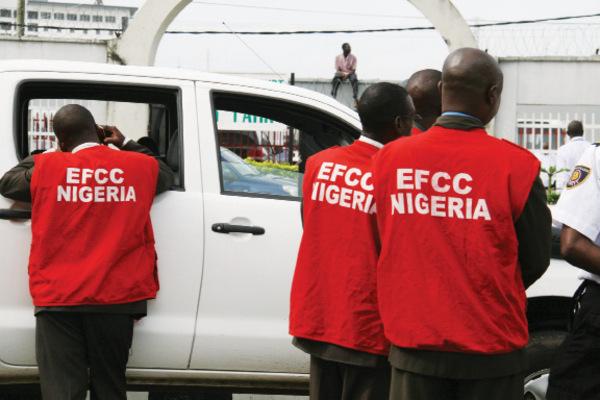Oil marketers have refunded N46 billion in a probe of massive fraud in the sector.
It is all part of the ongoing probe of the rot in the Nigerian National Petroleum Corporation, an Economic and Financial Crimes Commission (EFCC) source said yesterday.
The marketers, who are not named because “the investigation is yet to be concluded”, lifted products without paying a dime to the defunct Petroleum Products and Marketing Company (PPMC), a subsidiary of the NNPC now known as the National Petroleum Marketing Company(NPMC).
The anti-graft agency busted the fraud after going through the company’s records.
A top source in EFCC, who spoke in confidence with our correspondent, claimed that some of the marketers conspired with some staff of PPMC and NNPC to perpetrate the fraud.
The source said: “When we conducted our investigation, we discovered that the affected marketers sourced products from NNPC through PPMC without paying for them.
“In some instances, these marketers got two or three supplies and paid for one. Through connivance, they cooked the books.
“We discovered that products worth about N100billion were lifted and unpaid for by marketers leading to the invitation and interaction with some of them.
“So far, we have been able to recover N46billion out of the N100billion which the nation had purportedly lost.”
The source expressed concern that the some forces within and outside NNPC and PPMC behind the syndicate almost frustrated the EFCC team probing the “fraud”.
“The cartel wielded enormous influence in the sector and it almost frustrated the investigation and the recovery. As a matter of fact, some forces in NNPC and PPMC did not want us to go this far.
In spite of the liberalisation of the process of obtaining foreign exchange, most marketers still rely on the NNPC for their supplies.
Our correspondent’s was unsuccessful in getting the response of the Managing Director of NPMC( former PPMC), Mr. Farouk Ahmed, to the recovery made by EFCC.
Apart from calls, a text message was sent to Ahmed.
He did not acknowledge the calls and the text message.
The EFCC in April quizzed a former Managing Director of PPMC over some transactions and alleged purchase of houses valued at N1.3 billion off Amazon in Maitama, Asokoro and Wuse districts in Abuja.
The petitioners alleged that the ex-MD acquired the houses in less than six months in office.
An ex-Officio member of the Kaduna chapter of the Independent Petroleum Marketers Association (IPMAN), Bako Abdullahi Yelwa, had in February alleged that a cabal had been at work in PPMC.
He said: ”PPMC members of staff are frustrating Independent Marketers. Why will they ask for a percentage of our profit before giving us allocation? And when we refuse, they frustrate the process of getting our allocation. They only give product allocation to marketers that have given them a share of their profit upfront.
“For example, an Independent marketer gets an average of two allocations of Petrol (PMS) monthly and the profit from each truck is 80 thousand Naira. How can 160 thousand naira pay all my staff, service and maintain the stations and still keep me in business?”


 Naira4 weeks ago
Naira4 weeks ago
 Naira4 weeks ago
Naira4 weeks ago
 Travel3 weeks ago
Travel3 weeks ago
 Naira3 weeks ago
Naira3 weeks ago
 Jobs4 weeks ago
Jobs4 weeks ago
 Naira3 weeks ago
Naira3 weeks ago
 Investment4 weeks ago
Investment4 weeks ago
 Travel4 weeks ago
Travel4 weeks ago



























